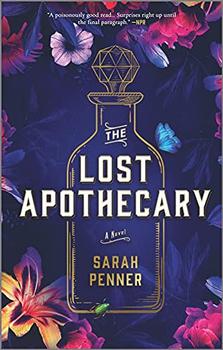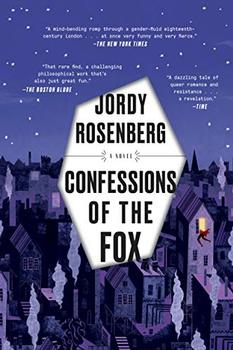Summary | Excerpt | Reviews | Beyond the book | Read-Alikes | Genres & Themes | Author Bio

Birdcage Walk is a historical novel with an unusual beginning. The opening prelude is set in contemporary times, with a widower walking his dog and coming upon a headstone dedicated to a long-dead writer, Julia Fawkes. Its inscription declares that her words will be her legacy, but the man who finds it has never heard of her and finds little evidence of her writing when he researches her in the following days.
Then the narrative switches. A new chapter takes the reader to 1789 and an atmospheric scene where an unnamed man is burying a dead woman in a forest. Questions about this mysterious death, and how it applies to the core of the novel are a compelling hook and establish an atmosphere of mistrust and apprehension that make Birdcage Walk a gripping read.
Eventually Dunmore turns to the story's true subject: not Julia Fawkes, but her daughter, Lizzie. It is 1792, and the shockwaves of the brutal revolution in France reverberate around Europe. Against this backdrop of world upheaval, in Bristol, England, Lizzie has more intimate worries. In the face of family opposition Lizzie had married Diner Tredevant, a handsome widower and ambitious entrepreneur, hoping to make his fortune by building and selling a terrace of grand homes. But now she finds her marriage faltering as she suspects he may have lied about what happened to his first wife, Lucy. Lizzie is still close with her mother and free-thinking stepfather, and she refuses to face up to Diner's controlling nature – at least until a stranger from France begins asking questions about the location of Lucy's grave.
Birdcage Walk contains all the elements required in a first-rate gothic novel. Dunmore expertly portrays the tensions and simmering sexual violence in Diner and Lizzie's marriage. When we first meet them, Lizzie sees her husband spying on her in the dark: "…he lay as still as a fox," she says, "I would not let him guess that I had seen the glint of his eyeball." With gloomy weather, the upending of social order in the daily news reports from France, a decaying, disheartening home, and a plot that builds steadily toward a dramatic climax, the recipe for a gripping novel of suspense are complete. Readers of Daphne du Maurier's Rebecca will find arresting plot parallels here.
The reader suspects from the outset what Lizzie does not – that Diner has killed Lucy several years previously and buried her body in nearby woods. The question here becomes not so much whether this truth will come out, as whether Lizzie will have the strength to find and face the facts about her husband. Even if she does, can she find the will to save herself from a spouse to whom she remains strongly physically attracted?
Lizzie's mother Julia and stepfather Ambrose are important minor characters, providing stark contrast to Diner and Lizzie's claustrophobic marriage. They are intellectuals and radicals, absorbed by events in France and absent-mindedly affectionate with each other. Julia's character bears similarity to the writer Mary Wollstonecraft. Wollstonecraft, a feminist writer who was born in 1759, died after giving birth to a daughter, Mary Shelley, wife of the poet Shelley and author of the novel, Frankenstein.
Sadly, Birdcage Walk is Helen Dunmore's last novel. Shortly after writing it, Dunmore, aged 64, was diagnosed with terminal cancer. She writes in the afterword, "the question of what is left behind haunts this novel." It is moving to read the book in this context. Particularly relevant is the opening section where the writer's legacy is asserted on her gravestone but her words have mostly been lost. One hopes that Dunmore, a prolific poet and novelist, will not similarly disappear from history.
![]() This review was originally published in The BookBrowse Review in August 2017, and has been updated for the
October 2018 edition.
Click here to go to this issue.
This review was originally published in The BookBrowse Review in August 2017, and has been updated for the
October 2018 edition.
Click here to go to this issue.

If you liked Birdcage Walk, try these:

by Sarah Penner
Published 2022
A forgotten history. A secret network of women. A legacy of poison and revenge. Welcome to The Lost Apothecary.

by Jordy Rosenberg
Published 2019
A love story set in the eighteenth-century London of notorious thieves and queer subcultures, this genre-bending debut tells a profound story of gender, desire, and liberation.
Your guide toexceptional books
BookBrowse seeks out and recommends the best in contemporary fiction and nonfiction—books that not only engage and entertain but also deepen our understanding of ourselves and the world around us.